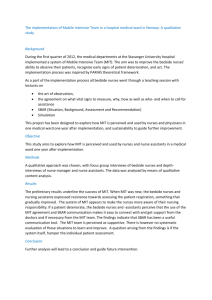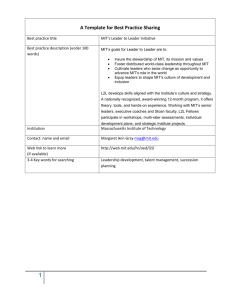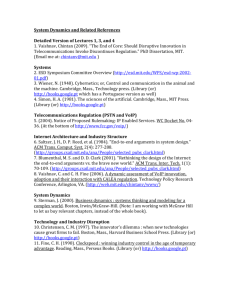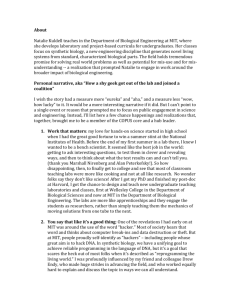Mobile intensive teams as an arena for learning and improvement
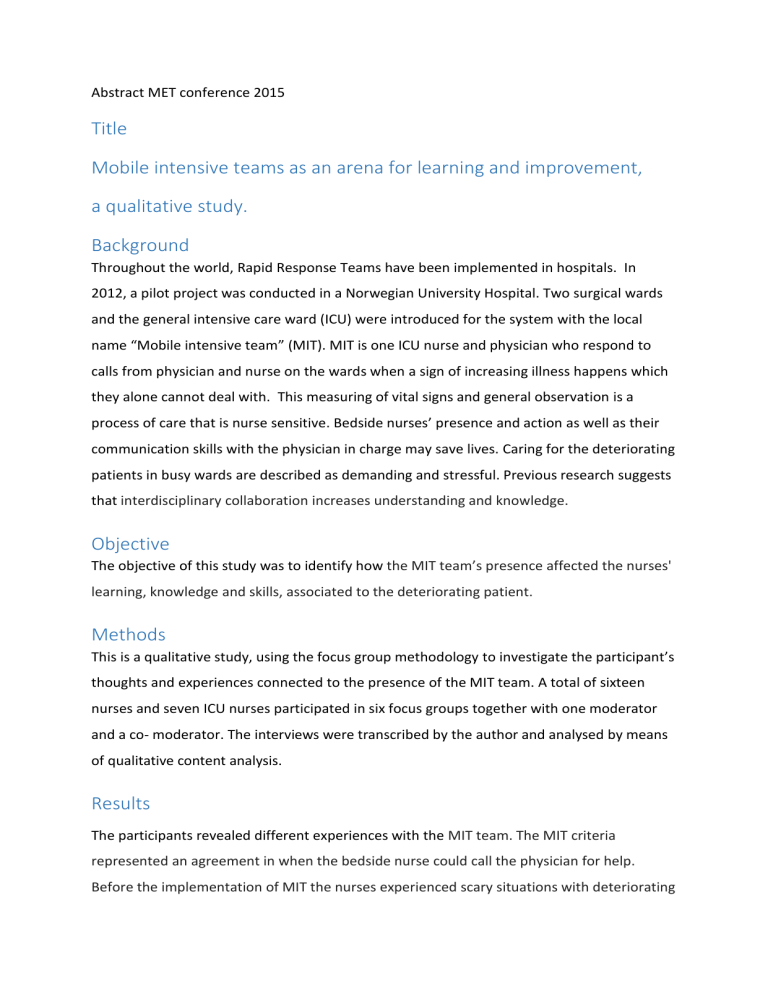
Abstract MET conference 2015
Title
Mobile intensive teams as an arena for learning and improvement, a qualitative study.
Background
Throughout the world, Rapid Response Teams have been implemented in hospitals. In
2012, a pilot project was conducted in a Norwegian University Hospital. Two surgical wards and the general intensive care ward (ICU) were introduced for the system with the local name “Mobile intensive team” (MIT). MIT is one ICU nurse and physician who respond to calls from physician and nurse on the wards when a sign of increasing illness happens which they alone cannot deal with. This measuring of vital signs and general observation is a process of care that is nurse sensitive. Bedside nurses’ presence and action as well as their communication skills with the physician in charge may save lives. Caring for the deteriorating patients in busy wards are described as demanding and stressful. Previous research suggests that interdisciplinary collaboration increases understanding and knowledge.
Objective
The objective of this study was to identify how the MIT team’s presence affected the nurses' learning, knowledge and skills, associated to the deteriorating patient.
Methods
This is a qualitative study, using the focus group methodology to investigate the participant’s thoughts and experiences connected to the presence of the MIT team. A total of sixteen nurses and seven ICU nurses participated in six focus groups together with one moderator and a co- moderator. The interviews were transcribed by the author and analysed by means of qualitative content analysis.
Results
The participants revealed different experiences with the MIT team. The MIT criteria represented an agreement in when the bedside nurse could call the physician for help.
Before the implementation of MIT the nurses experienced scary situations with deteriorating
patients without getting any response from the physician on call. The clear MIT framework and guidelines in how to act gave them confidence in their observation. The participants reported improved systematic reflection, learning and documentation.
The nurses described the arena with the MIT-team, and the physician in charge as an arena of learning and developing personal mastery. They described learning and understanding specific procedures and skills. They also described how this new knowledge helped them managing deteriorating patients in a more professional manner.
Conclusion.
The deteriorating patient is a patient at risk. The MIT framework represented an agreement in how to collaborate and behave. The bedside nurses described the presence of the MIT team and the physician in charge as an important arena of learning.
